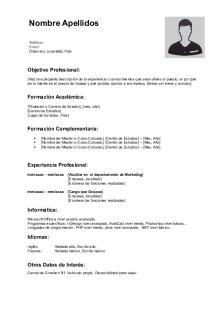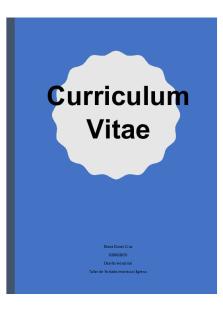2. Consortium Omnis Vitae PDF

| Title | 2. Consortium Omnis Vitae |
|---|---|
| Course | Law of persons |
| Institution | University of Pretoria |
| Pages | 1 |
| File Size | 103 KB |
| File Type | |
| Total Downloads | 37 |
| Total Views | 139 |
Summary
LPF NOTES...
Description
LAW OF PERSONS AND TH FAMILY
SECTION 2: THE CORE OF MARRIAGE – CONSORTIUM OMNIS VITAE BARRATT PP. 254-259 DAWOOD, GROBELAAR, WIESE AND WASSENAAR 1. The Consortium Omnis Vitae1 In Grobelaar v Havenga, the Court held that the Consortium is an ‘abstraction [of] rights, duties and advantages accruing to spouses’.2 The consortium is a legal relationship with binding rights and duties. 1. Protection of the consortium Protection against outside interference: The law protects the consortium against (a) unjustified state interference. In Dawood v Minister, the Constitutional Court held that co-habitation is an important part of the consortium and struck down legislation which undermined the cohabitation of certain couples. The Court essentially included the ‘right to perform marital obligations’ as an aspect of the right to human dignity and it can thus receive the same protection. The law also protects the consortium against the influence of (b) private parties, particularly in the case of adultery. Despite questions as to its relevance in the modern world, the delictual action against the third party in case of adultery has remained in our law and was confirmed as an actionable delict in post-constitutional South Africa in Wiese v Moolman. In Wiese v Moolman, the court extended the view propounded in Dawood (that any interference with the consortium constitutes a dignity violation) to include interference by private parties. The Court found that the action against adultery passed constitutional muster primarily due to the fact that parties to the marriage contract have voluntarily limited their own rights as well as created infringeable personality rights.
Loss of Support: The reciprocal duty of support between spouses is an important aspect of the consortium and when the negligent or intentional act of another, results in a loss of that spousal support, the surviving spouse has recourse to lex Acquilla. If the spouse whose support is lost worked only within the home, the Court may value their services and provide compensation. Enforcing the consortium between spouses: The courts can do very little to enforce the consortium between couples, for instance the court cannot interdict one party to talk to or have sex with the other. The only recourse when spouses fail to fulfil the interpersonal aspects of consortium is to sue for divorce on the grounds of ‘irretrievable breakdown’ of the marriage. Spouses are also unable to sue one another for adultery (and thus cannot interdict their spouse from committing adultery) for reasons of public policy. It may, under exceptional circumstances, be possible to interdict a third party from committing adultery with one’s spouse, although this has yet to be granted.
1 2
Literally ‘partnership in all of life’, the consortium is the most important invariable consequence of marriage. Including; ‘companionship, love, affection, comfort, mutual services, sexual intercourse.’
1...
Similar Free PDFs

2. Consortium Omnis Vitae
- 1 Pages

Plantilla curriculum vitae 2
- 1 Pages

Curriculum vitae
- 2 Pages

Curriculum-vitae-cronologico
- 1 Pages

Model Curriculum vitae
- 2 Pages

Currículum Vitae (Ejemplo)
- 5 Pages

Curriculum Vitae (CV)
- 4 Pages

Curriculum Vitae Norma Caass
- 7 Pages

Curriculum vitae 123r
- 2 Pages

Curriculum Vitae Format
- 2 Pages

Curriculum Vitae MAPA Mental
- 1 Pages

Plantilla curriculum vitae 13
- 1 Pages

Curriculum-vitae - examen
- 3 Pages
Popular Institutions
- Tinajero National High School - Annex
- Politeknik Caltex Riau
- Yokohama City University
- SGT University
- University of Al-Qadisiyah
- Divine Word College of Vigan
- Techniek College Rotterdam
- Universidade de Santiago
- Universiti Teknologi MARA Cawangan Johor Kampus Pasir Gudang
- Poltekkes Kemenkes Yogyakarta
- Baguio City National High School
- Colegio san marcos
- preparatoria uno
- Centro de Bachillerato Tecnológico Industrial y de Servicios No. 107
- Dalian Maritime University
- Quang Trung Secondary School
- Colegio Tecnológico en Informática
- Corporación Regional de Educación Superior
- Grupo CEDVA
- Dar Al Uloom University
- Centro de Estudios Preuniversitarios de la Universidad Nacional de Ingeniería
- 上智大学
- Aakash International School, Nuna Majara
- San Felipe Neri Catholic School
- Kang Chiao International School - New Taipei City
- Misamis Occidental National High School
- Institución Educativa Escuela Normal Juan Ladrilleros
- Kolehiyo ng Pantukan
- Batanes State College
- Instituto Continental
- Sekolah Menengah Kejuruan Kesehatan Kaltara (Tarakan)
- Colegio de La Inmaculada Concepcion - Cebu


